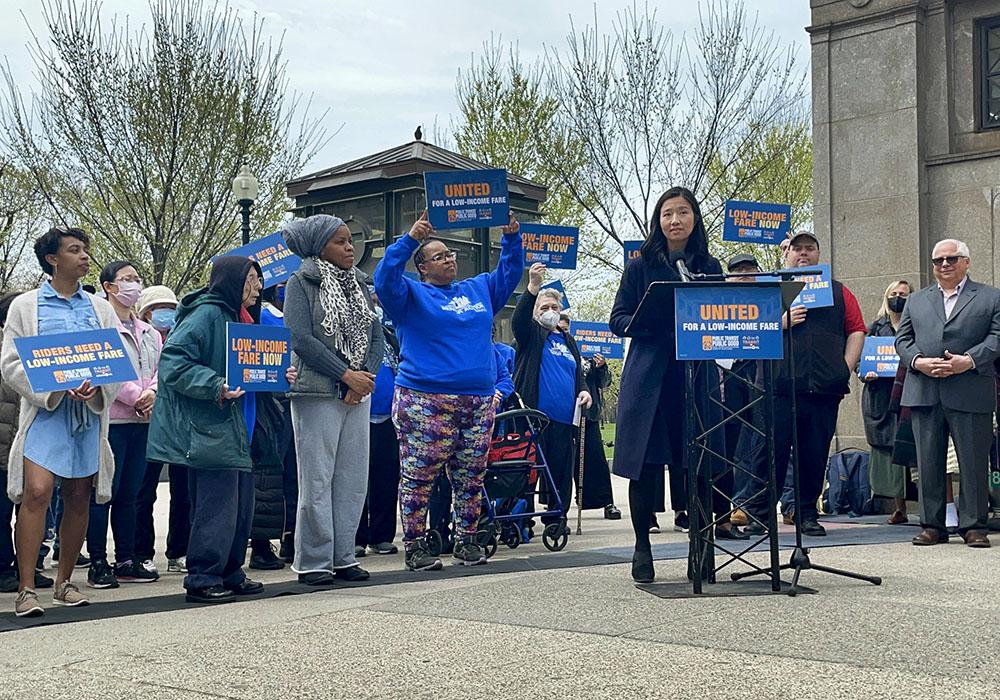
Public Transport Public Good and Transit is Essential, two local coalitions that advocate for affordable public transportation, joined Mayor Michelle Wu for a joint rally on April 25 to urge legislators to implement a low-income fare program for the MBTA.
“We want to make sure that public transit is affordable and rideable for the riders of Boston,” said Collique Williams, an organizer for Public Transit Public Good. “That’s why we’re calling for a low-income fare today, for the riders that are most impacted, that need assistance in order to be able to afford public transit.”
Richard Dimino — president and CEO of multi-sector group A Better City — was a featured speaker at the rally and said low-income fares would better “connect” residents to their jobs and families.
“Right now is a time where they could really use our help,” Dimino said. “Challenging times of rising inflation [and] grocery costs really put them in a place where they really need what almost should be a right, which is the right to mobility.”
City Council resolution MBTA Low-income Transit Fares — sponsored by City Councilor Liz Breadon and seven other councilors — was filed April 25 and called on the MBTA “to advance and implement a low-income fare program before setting new fees in place.” In March, the MBTA introduced a new fare collection media system which will include a $3 fee for each new CharlieCard.
“Data shows that a reduced fare for the MBTA would allow low-income people to afford 30% more trips and can help ensure families don’t have to decide between getting to where they need to go, buying groceries, going to the doctor, or other necessities,” according to the Transit is Essential press release.
According to the resolution, instating a new CharlieCard system could negatively affect the transportation equity for those with low socioeconomic status.
Steven Povich, the MBTA’s director of fare policy and analytics, said the fee will help cover the “one more trip protection” — which allows riders to swipe into the station despite low or zero balance in their CharlieCards — and the cost for Reduced Fare Riders program participants.
“Reduced fare program participants will receive a card for free without the $3 fee, and we’re creating programs partnering with local organizations to ensure that we distribute cards to low-income communities so this isn’t a burden for riders of our system,” Povich said at a March 22 public hearing.
Martha London — a participant at the rally with the Massachusetts Senior Action Council that focuses primarily on the senior citizens — said she believes many seniors are currently in troubling financial situation
“Medicare charges just went up, so money is getting tighter and tighter for seniors in Massachusetts,” London said. “We really need to have a low income fare for everyone, certainly maintain the senior fare, hopefully make it lower if possible, and we’d love to see that happen.”
State Representative Adrian Madaro introduced a bill and petition in February 2022 to enforce a permanent discounted fare program for low-income riders. Mayor Wu thanked Madaro at the rally, and said “the gap is at the state level.”
“For Boston to be a city for everyone, every opportunity in our city needs to be open to everyone,” Wu said. “In other words, public transit is a public good. Every investment in public transportation is an investment in our shared future, in every single person in our Commonwealth.”
Senior writer Jit Ping Lee contributed to the reporting for the article.





















































































































